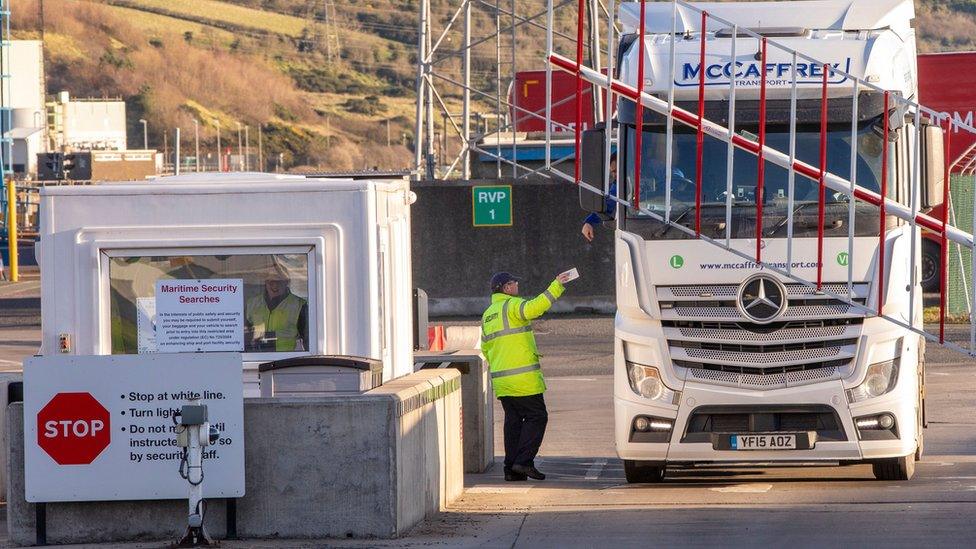Northern Ireland businesses increase value of external sales
- Published

Great Britain remained Northern Ireland's biggest external market with sales of £11.3bn
Northern Ireland businesses increased the value of their external sales by 3.3% to £23bn in 2019, official figures suggest.
Great Britain remained the biggest external market with sales of £11.3bn, up nearly 7% on 2018.
That consisted of £6.8bn in goods and £4.5bn in services.
The biggest export market remained the Republic of Ireland with sales up 10% to £4.5bn. In 2014, the figure was £3.5bn.
Sales to Great Britain have been volatile in recent years with the closure of some factories, particularly JTI in Ballymena, leading to a significant fall in the value of goods sold, partially mitigated by a rise in services sold.
Compared to 2014, total sales to GB were down 13% from £13bn to £11.3bn.
Flows of trade between Northern Ireland, the Republic of Ireland and Great Britain have become politically sensitive in the post-Brexit era.
The NI Protocol keeps Northern Ireland in the EU's single market for goods allowing trade to flow freely across the Irish border.
But it has created a new trade border in the Irish Sea, causing some difficulties in moving goods from Great Britain to Northern Ireland and the Republic of Ireland.
Goods going from Northern Ireland to Great Britain continued to have "unfettered access".

Brexit Minister Lord Frost has described increased Irish cross-border trade as "in many ways a problem"
These arrangements mean there is now an incentive for businesses on the island of Ireland to cut Great Britain out of supply chains where possible.
Official monthly data from Ireland's Central Statistics Office suggests some businesses are sourcing more products on the island of Ireland where they can, rather than from Great Britain.
For the first quarter of 2021, Northern Ireland goods exports to the Republic were up 44% from 519m euros to 748m euros.
Goods exports from the Republic of Ireland to Northern Ireland were up by 22% from 557m euros to 682m euros.
The UK's Brexit Minister Lord Frost has described this increased cross-border trade as "in many ways a problem".
He said it was a problem as it showed Northern Ireland firms could not use their first choice suppliers in Great Britain.
"I don't think it totally makes sense for us to encourage more of that development, rather than deal with the consequences of it," he told a House of Lords committee earlier this month.
Related topics
- Published2 February 2024

- Published27 July 2021
